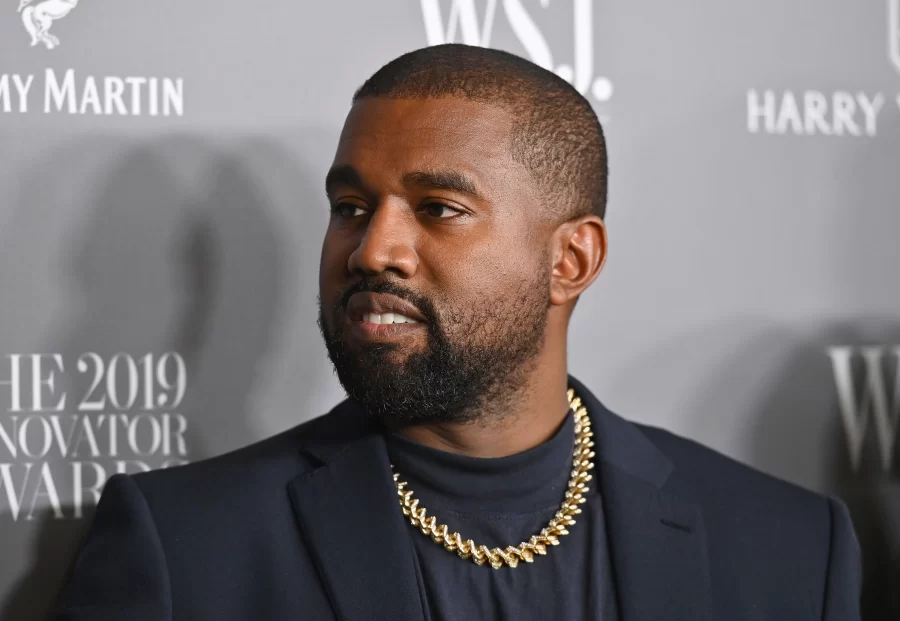Opinion | Censorship on Twitter is necessary
Photo courtesy of Angela Weiss/AFP/Getty Images/TNS
Ye, formerly known as Kanye West, attends the WSJ Magazine 2019 Innovator Awards at MOMA on Nov. 6, 2019. Columnist Maggie Knutte believes that censorship is necessary when it comes to protecting people from hate and harm such as with Ye’s antisemitic posts.
November 11, 2022
The word “censorship” often carries a negative connotation, as many people consider censorship to be a tool the government uses to suppress and control public opinion. While censorship can have negative effects, it also protects the public from harm.
This happens frequently when we spend most of our day on social media. Social platforms work to keep offensive and obscene material off of your page while you scroll.
Famous people in particular pose a threat on social media. With a large following, celebrities are often idolized — sometimes to an unsettling degree. Their large audience gives them power and influence, so their words should not be taken lightly.
Formerly known as Kanye West, famous rapper Ye has a history of abusing the power of his audience. A few weeks ago, Ye shared antisemitic posts on both his Instagram and Twitter accounts. His tweet threatened, “I’m going death con 3 On JEWISH PEOPLE.” In this tweet, Ye was essentially condemning and wishing death upon Jewish people. He recently posted another antisemitic exchange on Instagram.
Sharing a post that attacks and wishes death to an entire group of people is both hostile and alarming — especially when that group has a history of persecution. Instagram and Twitter restricted Ye after he posted the hateful messages, and recently, major brand Adidas ended their partnership with Ye.
Get The Daily Illini in your inbox!
It can be hard to determine the impact of a message right after it’s posted. Shortly after Ye’s antisemitic posts, a group supporting him gathered on a freeway in Los Angeles holding posters. One poster read, “KANYE IS RIGHT ABOUT THE JEWS.” If Ye continued to fuel this fire on social media, it might have led to more antisemitic demonstrations — possibly even violence.
With censorship, we wouldn’t have to wait and worry about what someone could do after seeing a message like Ye’s.
Former President Donald Trump also abused his power on Twitter. On Jan. 6, he shared a tweet that led to major terror and destruction at our nation’s capital. The impact of his tweet showed the dangers of what can happen if speech is abused by figures in power. It also proved that social media sites have a duty to protect the public, and Twitter could have done so by censoring those tweets.
Some may argue social media companies don’t have the right to censor Americans under the First Amendment. However, the First Amendment only applies to government actors, not private companies like Meta and Twitter.
Some argue that censorship on social media sites is politically motivated. In fact, a Pew Research study found that many adults think social media sites are likely to censor political views they find objectionable. This claim was brought up and addressed in a Senate hearing held by Republicans in 2019. They believed that social platforms were intentionally censoring conservative speech, but this claim was backed up by no solid evidence.
However, a study conducted on Facebook actually showed that both parties had equal engagement on the platform during the time leading up to the hearing. When it comes to political content being censored, social media sites are not looking to silence one party, but rather stop misinformation from being spread.
Social media sites will often provide a warning for content that fact-checkers have found inaccurate or misleading. For example, Instagram often places disclaimers on posts relating to COVID-19 to make sure everyone receives accurate information.
When it comes to big issues like COVID-19, or other issues deemed political, it is important not to spread misinformation. A recent study highlighted the danger of misinformation during COVID-19, including damage to individuals’ mental health.
Harmful speech can be more direct, too. Cyberbullying is a large issue that has plagued social media sites since their creation. Censorship helps tackle this issue and prevent some hateful messages from being spread.
In the future, social media companies should work to be more preemptive in their censorship. Reviewing posts that block certain words before they are shared, or reviewing posts from a user with a history of harmful posts — like Ye — can help make social media safer.
Maggie is a sophomore in LAS.







